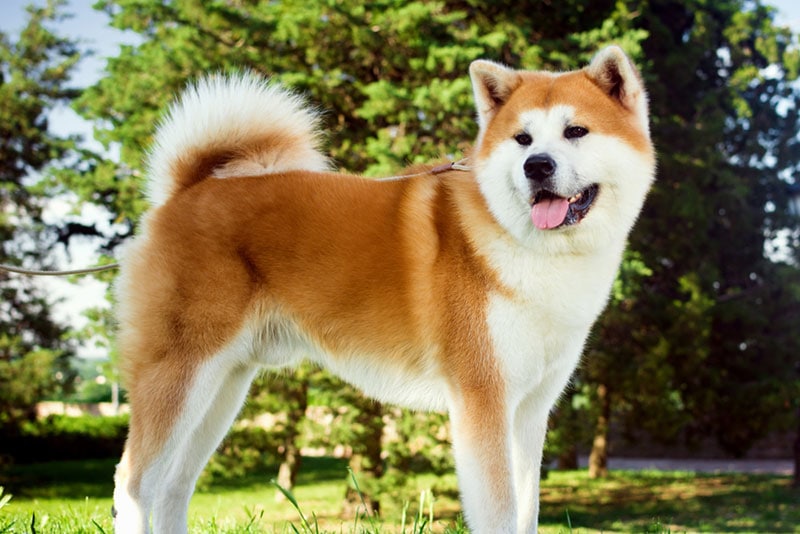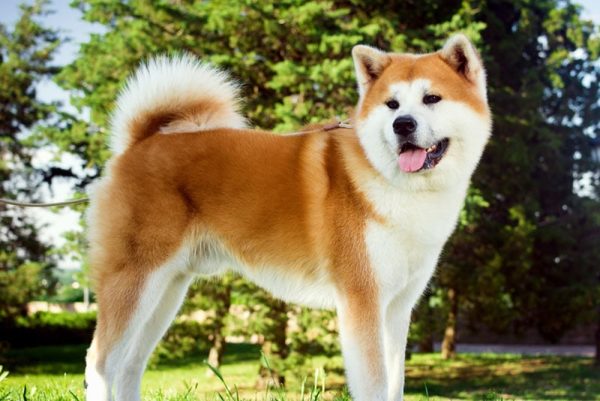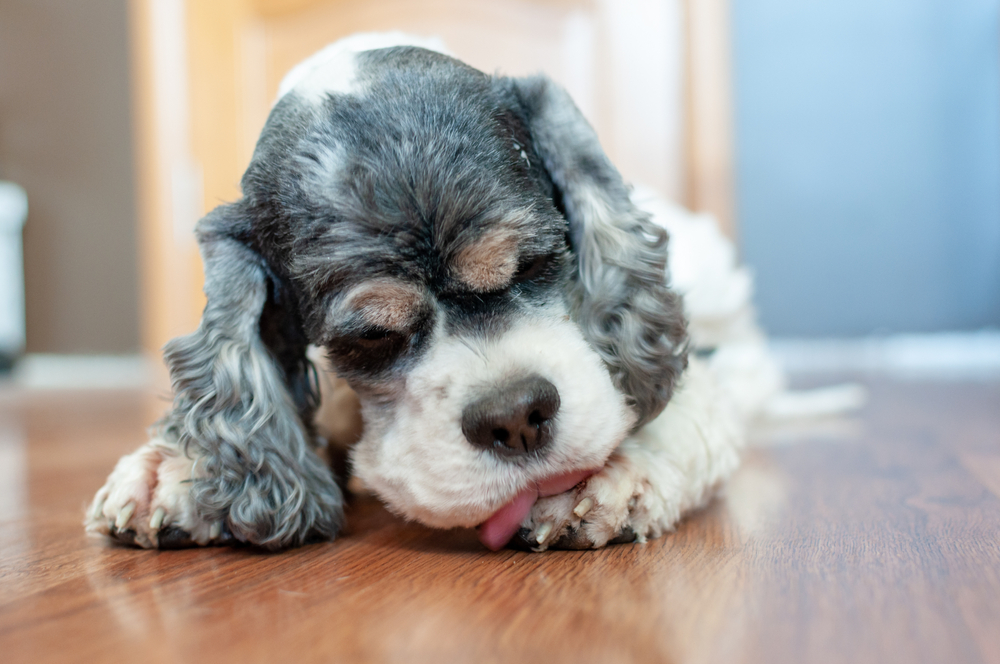Click to Skip Ahead
The Akita originated in Japan and is a gorgeous, muscular canine. They were originally bred to protect their owners and hunt big game. You can expect an Akita to weigh between 70 and 130 pounds at full growth and top out at 24 to 28 inches in height.
Akitas make loyal, loving companions, but they can be wary of strangers, so you need to train and socialize them properly if you’re going to adopt one. They are not usually recommended for first-time dog guardians. If you’ve been considering giving an Akita a forever home, there are a few things you need to know first. For information on how long the Akita lives and more, join us below. In general, you can expect Akitas to live for 10–14 years.
Akita Average Lifespan
The Akita can live 10 to 14 years on average. However, their lifespan is affected by quite a few factors. While 10 to 14 years is a long period for a large breed, several things can prolong your Akita’s life, and just as many things can shorten it. In the section below, we’ll talk more about what you can do to help your Akita live a long life.
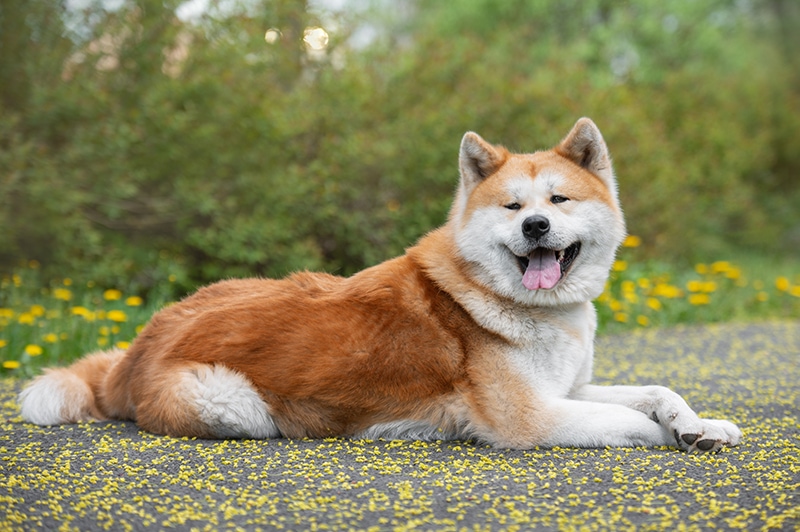
Why Do Some Akitas Live Longer Than Others?
Caring for your Akita to ensure your pet enjoys a long life is not complicated but requires dedication and patience. We’ll discuss feeding, grooming, exercise needs, and any health issues you might need to look out for below.
1. Feeding & Diet
Your Akita’s diet is going to depend on the age of your pet, their lifestyle, and whether they have any medical issues that need to be dealt with. To keep your Akita healthy and fit, it’s best to feed him a steady diet of high-quality, protein-filled food. You should split your dog’s meals into two daily instead of free-feeding your pet; although Akitas are energetic, they’re also prone to gain weight if they’re overfed.
Treats should be given to your dog sparingly, but they’ll help you reward your dog when you begin training. Some veterinarians recommend switching to a low-calorie formula when Akitas are 7 years or older to reduce the chance of getting kidney disease. If you’re unsure how much you should feed your Akita, talk to your vet for recommendations.
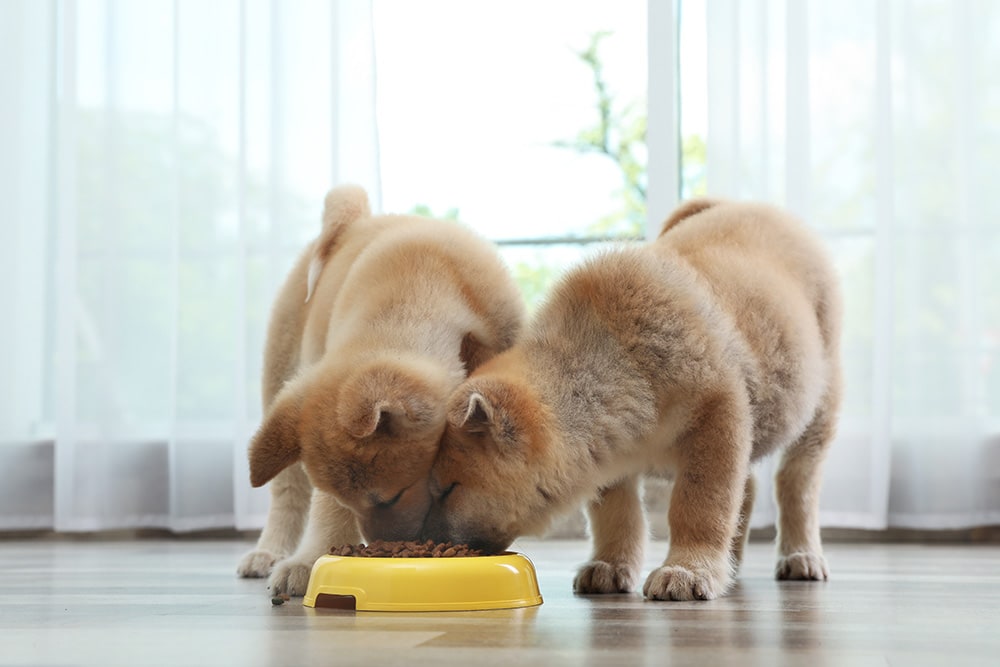
2. Exercise
Your Akita is a large dog, and they need a few hours of daily exercise to be happy and healthy. However, the Akita was bred to hunt, so make sure that you keep him on a lead when you’re walking, so he can resist the temptation of chasing other people’s pets and small animals. Two hours of exercise should be enough to keep your Akita healthy.
Remember, a large dog can develop unpalatable behaviors such as being destructive when bored, so it’s important to keep your Akita occupied both physically and mentally. They are intelligent dogs, and they love playing fetch with their owners and participating in agility trials.
3. Grooming
Akita’s have short, dense fur, but don’t be fooled. Just because the fur is short doesn’t mean that this dog doesn’t shed. In fact, they shed quite a lot. It’s best to brush your Akita Dog at least three times a week to remove dead hair. However, when they blow their coats in the late Spring or Summer, you’ll have to brush them every day to keep their coats shiny and healthy.
They’ll also need their teeth brushed several times weekly and their nails trimmed every 2 to 4 weeks. If you feel you can’t keep up with your Akita’s grooming, you can always pay a professional groomer to do the job.
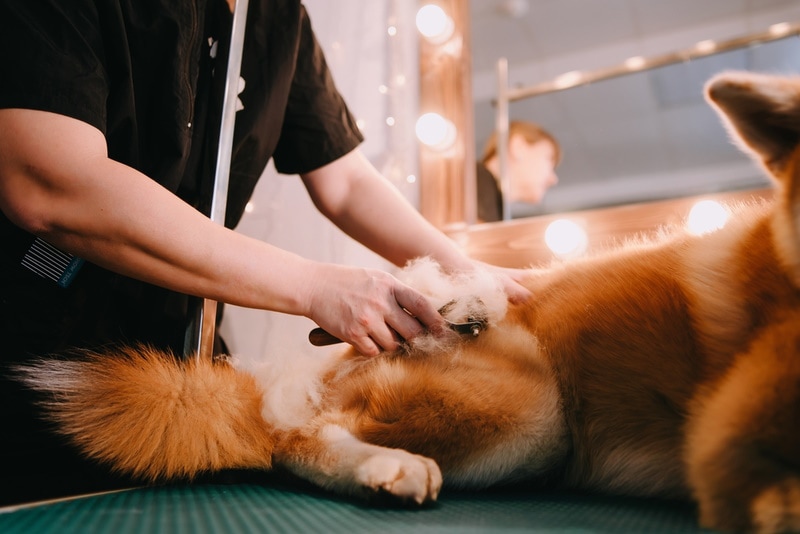
4. Healthcare
- Hip dysplasia
- Arthritis
- Gastric dilation volvulus
- Progressive retinal dystrophy
- Auto-immune diseases
- Skin problems
- Glaucoma
If your Akita displays any troubling signs or behaviors, it’s best to take him to the vet right away for a full examination. The best way to keep your Akita healthy is to take him in for regular checkups with your vet so that any problems can be detected early and treated before they worsen.
The Life Stages of an Akita
The Akita will go through four stages.
1. Puppy
You can expect your Akita Puppy to reach its full growth in 10 months to one year. However, the dog should continue to mature until he’s around 2 years of age. It’s well known that large-breed dogs take more time to reach maturity than smaller breeds.
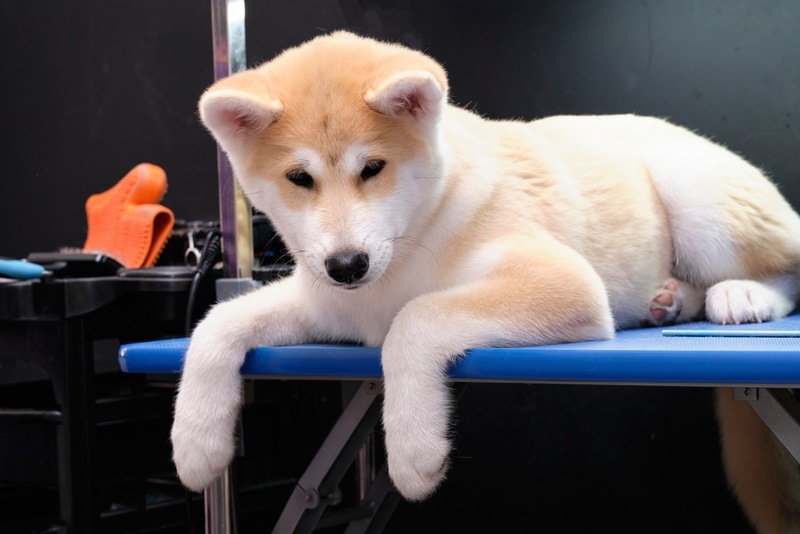
2. Young Adult
Your Akita will be a young adult between the ages of 1 and 5. This is also when he will be extremely playful and fun to be around.
3. Adult
You’ll notice your Akita becoming a mature adult between the ages of 5 and 10. They’ll slow down quite a bit and won’t be as playful as they once were. You may also start to notice a few minor health problems the dog didn’t have before.
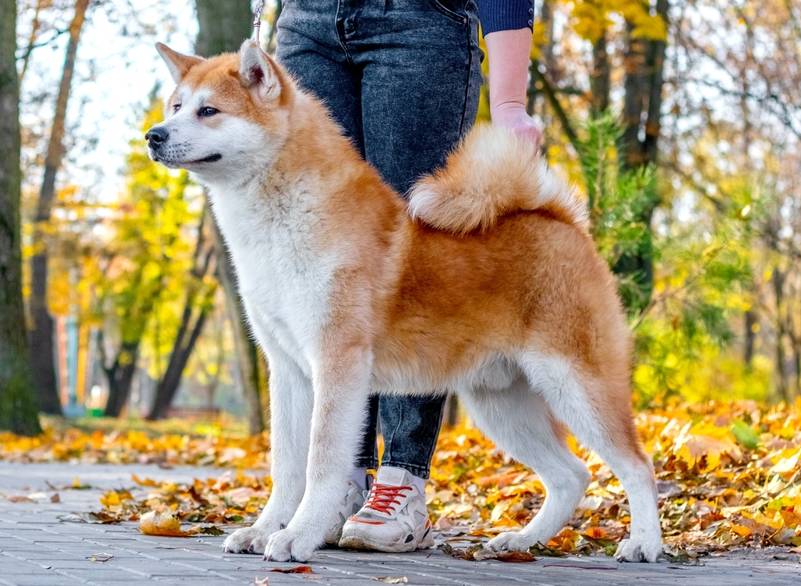
4. Senior
Once your Akita is over 10 years old, he’s a senior. He will slow down a lot more, but exercise is still important. However, you must reduce the frequency and intensity of the exercise to protect his joints. You’ll notice more health issues in your furry friend, so make sure that you keep up with regular checkups.
How to Tell Your Akita’s Age
There are a couple of ways to tell your Akita’s age. If you purchased your dog from a breeder, you should have documents stating how old the dog is. However, if you don’t, you can take your Akita to the vet, and they should be able to determine his approximate age but it is not possible to be accurate.
Although it’s not a precise method, you can also look at your dog’s teeth, eyes, and coat for clues about their age. Senior Akitas can have missing or damaged teeth, cloudy eyes from cataracts, and grayer fur that’s not as shiny.
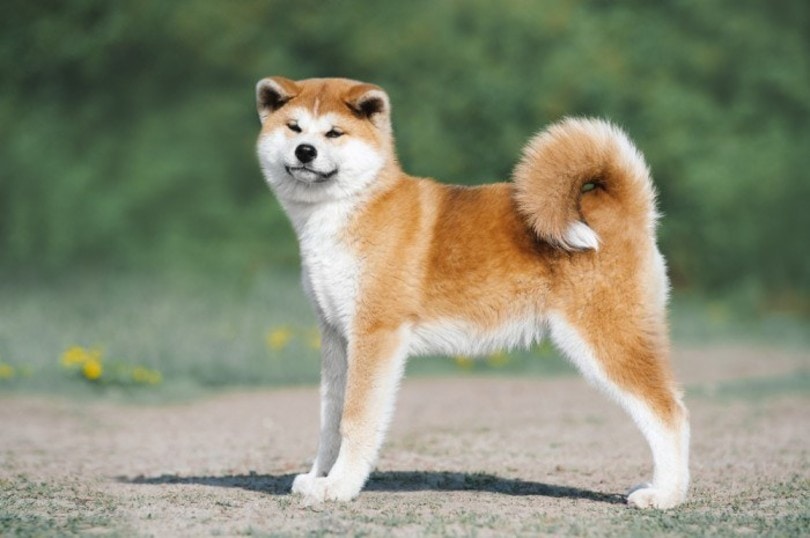
Final Thoughts
The Akita lives between 10 and 14 years if cared for properly. The easiest way to determine your Akitas age is to take him to the vet unless you purchased the dog from the breeder, and then you should have documents stating his age.
If you’re looking to give an Akita Puppy a forever home, you can talk to a reputable breeder or rehoming shelter to determine the health conditions and temperament of the pet before making a final decision. Akitas are remarkable dogs, and with the proper training and care, they can brighten the lives of their owners for several years.
Featured Image Credit: Nikoleta Vukovic, Shutterstock

